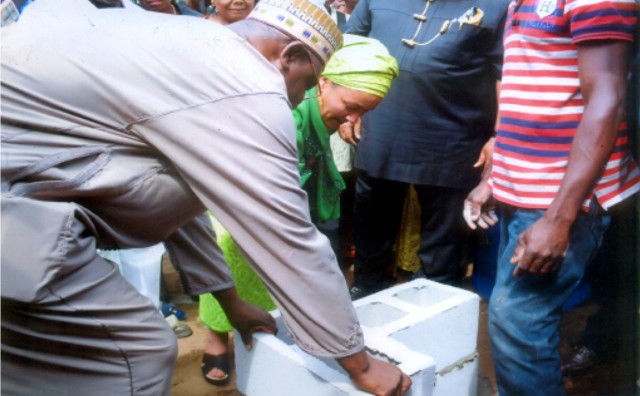Business
Maritime Lawyer Advises FG On Freight Stabilisation Fund

A maritime lawyer, Mr Mike Igbokwe (SAN), has advised the Federal Government to establish a Freight Stabilisation Fund to protect shippers and the domestic economy from fluctuation.
Igbokwe gave the advice in paper titled: “Reflections on Selected Industrial Topical Issues: Coastal and Inland Shipping (Cabotage), Freight Stabilisation & Inland Water Transportation’’, presented in Lagos at a retreat on Maritime and Transport Industry in Nigeria.
According to him, the fund will serve as a mechanism of protecting shippers and the domestic economy from fluctuation of freights to maintain a steady level of government revenue.
The legal practitioner said this was meant to avoid inflation and prevent overheating of the nation’s economy.
He said that high freight payable by Nigerian Shippers for exports and imports could lead to diversion of cargo to neighbouring ports where freights were cheaper.
Igboke said this would reduce patronage of Nigerian ports and reduce revenue of Nigeria Customs Service; create inflation of prices of imported raw materials and cargo that would be passed to consumers.
“Through freight stabilisation, carriers may come together ad agree on fixed freights that would be charged,’’ the maritime lawyer said.
He highlighted advantages of Coastal and Inland Shipping Act like the development of shipping and repairs industry; development and growth of domestic waterborne transportation; economic boom; and development and growth of domestic maritime infrastructure.
Igbokwe also mentioned creation of employment; revenue and conservation of foreign exchange; and avoidance of capital flight as well as Nigerian ownership and control.
The legal practitioner also talked about training and education of seafarers as well as safety of the environment.
He, however, noted the drawbacks of Cabotage Act like the controversial definition of “vessel’’ without specifically stating rigs “but stating it as a vessel under the Guidelines for its implementation.’’
“Non-distribution of the funds of Cabotage Vessel Financing Fund (CVFF) for the purpose it was created.
He said he was not aware of any indigenous shipping company or Nigerian that had benefitted from the CVFF.
Igbokwe also mentioned multiple charges and fees charged by the multiple government agencies (NIMASA, NPA, PPMC, DPR) on cabotage vessels.
According to him, the charges increased cost of cabotage shipping and discouraged investment in cabotage shipping.
The maritime lawyer said cabotage had not been in the front burner as a catalyst for local shipping development as intended by stakeholders and the National Assembly.
He, however, commended the National Assembly for enacting several maritime laws to move the industry forward.
Igbokwe mentioned the NPA Act, the Nigerian Shippers; Council Act, the NIMASA Act and the Nigerian Oil and Gas industry Local and Content Act.
“ It (NASS) can do better in making maritime laws and updating old maritime laws to meet current challenges without delay,’’ Igbokwe said.
He urged the National Assembly to assist the executive in unlocking potential of the maritime sub-sector to encourage economic growth by creating the enabling environment for indigenous shipping industry to develop and play its role in quickly passing all maritime industry bills.
The bills are: the National Transport Commission Bill; Ports and Harbour Bill; Cabotage Act (Amendment); and the Sea Carriage Bills.

